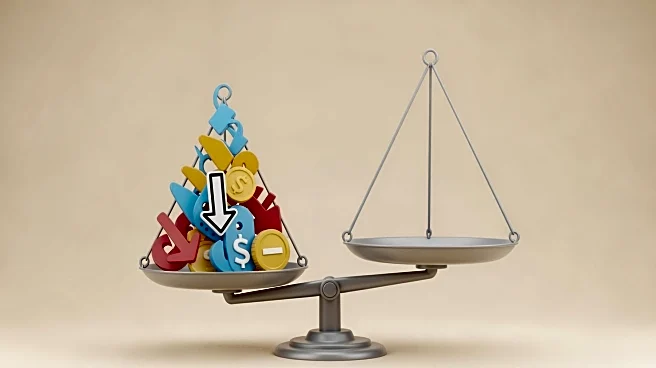What's Happening?
Representative Tom McClintock has proposed a plan to balance the budget and improve the economy by eliminating subsidies. He suggests that removing subsidies would save taxpayer dollars, reduce costs of subsidized goods, and reinvigorate the economy by redirecting
capital to more productive uses. McClintock's proposal is part of his broader fiscal conservatism agenda, which aims to curb government spending and promote economic efficiency.
Why It's Important?
McClintock's proposal to end subsidies is significant as it addresses ongoing debates about government spending and economic policy. Subsidies have long been a contentious issue, with arguments about their impact on market dynamics and taxpayer burden. By advocating for their removal, McClintock is challenging existing economic policies and promoting a free-market approach. This could lead to substantial changes in how industries operate and are funded, affecting sectors like agriculture, energy, and manufacturing.
What's Next?
If McClintock's proposal gains traction, it could lead to legislative efforts aimed at reducing or eliminating subsidies. This would likely spark debates among policymakers, industry leaders, and economists about the potential impacts on various sectors. Stakeholders will need to assess the implications of such changes on their operations and financial strategies.
Beyond the Headlines
The push to end subsidies raises questions about the role of government in economic regulation and the balance between free-market principles and state intervention. McClintock's stance may influence broader discussions on fiscal policy and economic reform within the Republican Party and beyond.
















